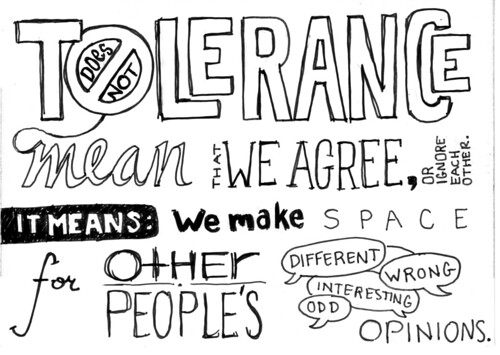Psalm 23:5-6
 The host similarly provides a meal (table and cup, v.5-6) and appropriate refreshment and honor to the guest (v.6) as seen in not just the table preparations but the anointing with oil. However, the Lord as our Host does more than that. In the ancient Middle Eastern culture “the law of hospitality” was supreme and made the host is responsible to offer protection to those who shelter in his home. The Lord as host in this psalm not only protects the guest from enemies, but vindicates the guest in their presence (v. 5). This is no hurried meal snatched in the anxiety of imminent attack, but a humanized form of the rest experienced by sheep whose shepherd has led them to green pastures. Spurgeon, the great 19th Century preacher, when commenting on this psalm, wrote,
The host similarly provides a meal (table and cup, v.5-6) and appropriate refreshment and honor to the guest (v.6) as seen in not just the table preparations but the anointing with oil. However, the Lord as our Host does more than that. In the ancient Middle Eastern culture “the law of hospitality” was supreme and made the host is responsible to offer protection to those who shelter in his home. The Lord as host in this psalm not only protects the guest from enemies, but vindicates the guest in their presence (v. 5). This is no hurried meal snatched in the anxiety of imminent attack, but a humanized form of the rest experienced by sheep whose shepherd has led them to green pastures. Spurgeon, the great 19th Century preacher, when commenting on this psalm, wrote,
 “When a soldier is in the presence of his enemies, if he eats at all he snatches a hasty meal, and away he hastens to the fight. But observe: ‘Thou preparest a table,’ just as a servant does when she unfolds the damask cloth and displays the ornaments of the feast on an ordinary peaceful occasion. Nothing is hurried, there is no confusion, no disturbance, the enemy is at the door and yet God prepares a table, and the Christian sits down and eats as if everything were in perfect peace.”[1]
“When a soldier is in the presence of his enemies, if he eats at all he snatches a hasty meal, and away he hastens to the fight. But observe: ‘Thou preparest a table,’ just as a servant does when she unfolds the damask cloth and displays the ornaments of the feast on an ordinary peaceful occasion. Nothing is hurried, there is no confusion, no disturbance, the enemy is at the door and yet God prepares a table, and the Christian sits down and eats as if everything were in perfect peace.”[1]
 The Lord is our host, both now and in the future. The psalmist makes it clear that he was currently participating in the banquet and would enjoy “dwelling” with the Lord in the future, even forever
The Lord is our host, both now and in the future. The psalmist makes it clear that he was currently participating in the banquet and would enjoy “dwelling” with the Lord in the future, even forever
5 You prepare a table before me
in the presence of my enemies;
you anoint my head with oil;
my cup overflows.
6 Surely goodness and mercy shall follow me
all the days of my life,
and I shall dwell in the house of the Lord forever.
in the presence of my enemies;
you anoint my head with oil;
my cup overflows.
6 Surely goodness and mercy shall follow me
all the days of my life,
and I shall dwell in the house of the Lord forever.
Comments:
Psalm 23 is usually referred to as “The Shepherd Psalm” for good reason (v.1-4), but it also contains the imagery of host and honored guest (v. 5-6). This second aspect of Psalm 23 gets very little attention compared to the first. However, there are a number of similarities between the two.
The shepherd shows the sheep hospitality by providing good food, drink, and a comfortable place to rest (v.1-3). The shepherd also offers the sheep protection as they journey on good paths that reflect well on the character of the shepherd (v.3-4).
 The host similarly provides a meal (table and cup, v.5-6) and appropriate refreshment and honor to the guest (v.6) as seen in not just the table preparations but the anointing with oil. However, the Lord as our Host does more than that. In the ancient Middle Eastern culture “the law of hospitality” was supreme and made the host is responsible to offer protection to those who shelter in his home. The Lord as host in this psalm not only protects the guest from enemies, but vindicates the guest in their presence (v. 5). This is no hurried meal snatched in the anxiety of imminent attack, but a humanized form of the rest experienced by sheep whose shepherd has led them to green pastures. Spurgeon, the great 19th Century preacher, when commenting on this psalm, wrote,
The host similarly provides a meal (table and cup, v.5-6) and appropriate refreshment and honor to the guest (v.6) as seen in not just the table preparations but the anointing with oil. However, the Lord as our Host does more than that. In the ancient Middle Eastern culture “the law of hospitality” was supreme and made the host is responsible to offer protection to those who shelter in his home. The Lord as host in this psalm not only protects the guest from enemies, but vindicates the guest in their presence (v. 5). This is no hurried meal snatched in the anxiety of imminent attack, but a humanized form of the rest experienced by sheep whose shepherd has led them to green pastures. Spurgeon, the great 19th Century preacher, when commenting on this psalm, wrote, “When a soldier is in the presence of his enemies, if he eats at all he snatches a hasty meal, and away he hastens to the fight. But observe: ‘Thou preparest a table,’ just as a servant does when she unfolds the damask cloth and displays the ornaments of the feast on an ordinary peaceful occasion. Nothing is hurried, there is no confusion, no disturbance, the enemy is at the door and yet God prepares a table, and the Christian sits down and eats as if everything were in perfect peace.”[1]
“When a soldier is in the presence of his enemies, if he eats at all he snatches a hasty meal, and away he hastens to the fight. But observe: ‘Thou preparest a table,’ just as a servant does when she unfolds the damask cloth and displays the ornaments of the feast on an ordinary peaceful occasion. Nothing is hurried, there is no confusion, no disturbance, the enemy is at the door and yet God prepares a table, and the Christian sits down and eats as if everything were in perfect peace.”[1]
He leads us to his house and there where everyone can see he makes it clear that we are not only under his protection but are honored by his relational hospitality. Yet some might think that this is only our 15 minutes of fame and that soon we will be out on our own again. This is not what the psalm teaches. Nor is it some western hospitality that is done from a carefully orchestrated distance of individualism. Derek Kidner comments,
In the Old Testament world, to eat and drink at someone’s table created a bond of mutual loyalty, and could be the culminated token of a covenant…So to be God’s guest is to be more than an acquaintance, invited for a day. It is to live with Him.” [2]
 The Lord is our host, both now and in the future. The psalmist makes it clear that he was currently participating in the banquet and would enjoy “dwelling” with the Lord in the future, even forever
The Lord is our host, both now and in the future. The psalmist makes it clear that he was currently participating in the banquet and would enjoy “dwelling” with the Lord in the future, even forever
This Lord who is our Host, is Yahweh, the covenant-keeping God, who has been revealed in the person of the Son, Jesus Christ. He is the Good Shepherd (John 10:11-18) and he is the one who has gone to Heaven to prepare a place for us and will come back for us one day and take us to the table prepared (John 14:1-3).
In being the Lord our Host, God in Christ by the Spirit invites us into the Trinitarian community where we find protection, honor, refreshing, and justice that remains. But what does this mean for those of us who follow such a Shepherd and worship such a Host? When followers of the Way were first called Christians it was intended in a derogatory sense (Acts 11:26) but described their commitment to live as “little Christs” determined to do what Jesus had done. Early Christian hospitality and care for the poor were renowned as they provided food, shelter, medical care, and worked for justice for all whom they met when there was no Motel 6 leaving the light on for them. They were givers more than takers, despite living under the often brutal persecution of the Roman Empire. Could his words in John 14:12, “Truly, truly, I say to you, whoever believes in me will also do the works that I do; and greater works than these will he do, because I am going to the Father” have applied to hospitality? I think so.
So how do we become better hosts in today’s world? What will we risk? Whom will we protect and provision and send on their way and who will we allow to heal and help in our midst? Do we only open our homes and our lives to those who agree with us, look like us, and provide us some benefit? Or do we take Jesus’ words to heart, loving even our enemy for the sake of Christ?
How can those who don’t know the love of the Good Shepherd and Host learn of it and respond if not to that love as seen in us and extended to them? How will they know the welcome of Divine community if not embraced by the outposts of such community here on earth? In what ways should we welcome the beggar at our gate? I think we have a lot of reflection, thinking, and work to do.
Is not the best diplomacy that of a shared life and the honest and unguarded table? Will those who are open get burned in the process? Probably, but a better question to ask is, will those whose minds and gates are closed to the alien miss out on what God is doing? Absolutely.
This week we set aside a day to give thanks for what we have received from the Lord our Host. I have to confess that while I am often timid I am learning to open my eyes to the wonder of relational hospitality. In fact, I wonder what the Lord will do in our midst in the year to come. But first, I have to come into his midst by grace through the Word and the Spirit. Let’s encourage each other in this adventure!
“And let us consider how to stir up one another to love and good works, not neglecting to meet together, as is the habit of some, but encouraging one another, and all the more as you see the Day drawing near.” (Hebrews 10:24-25)
This post may also be found on my Psalms-related blog, Psalms-Honest2God.
This post may also be found on my Psalms-related blog, Psalms-Honest2God.














